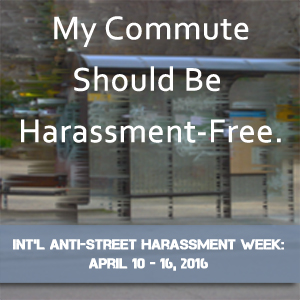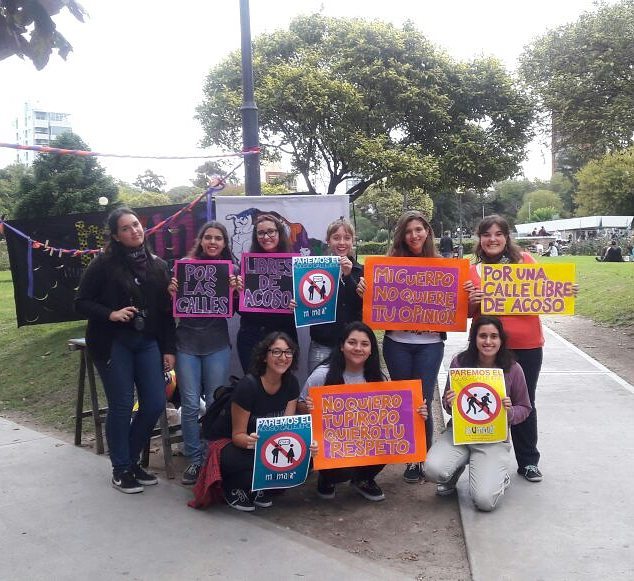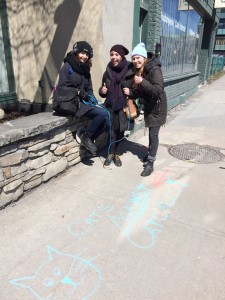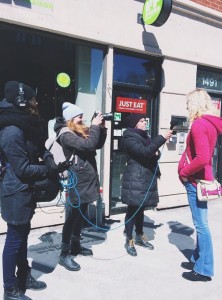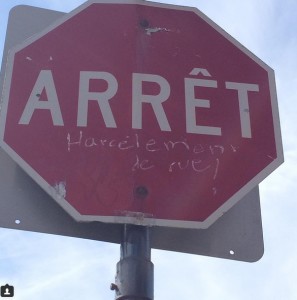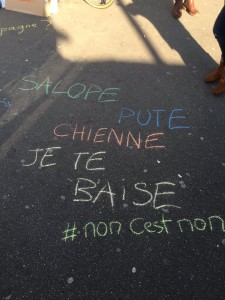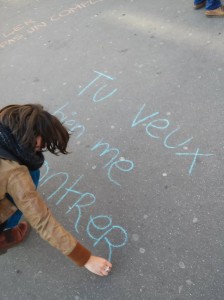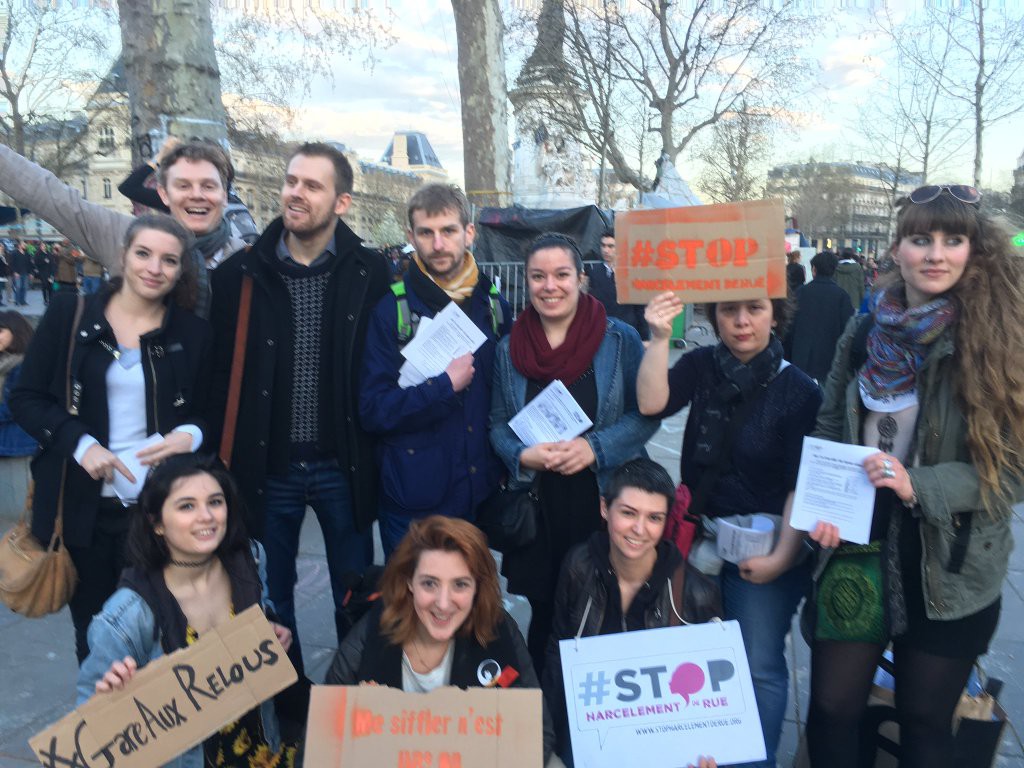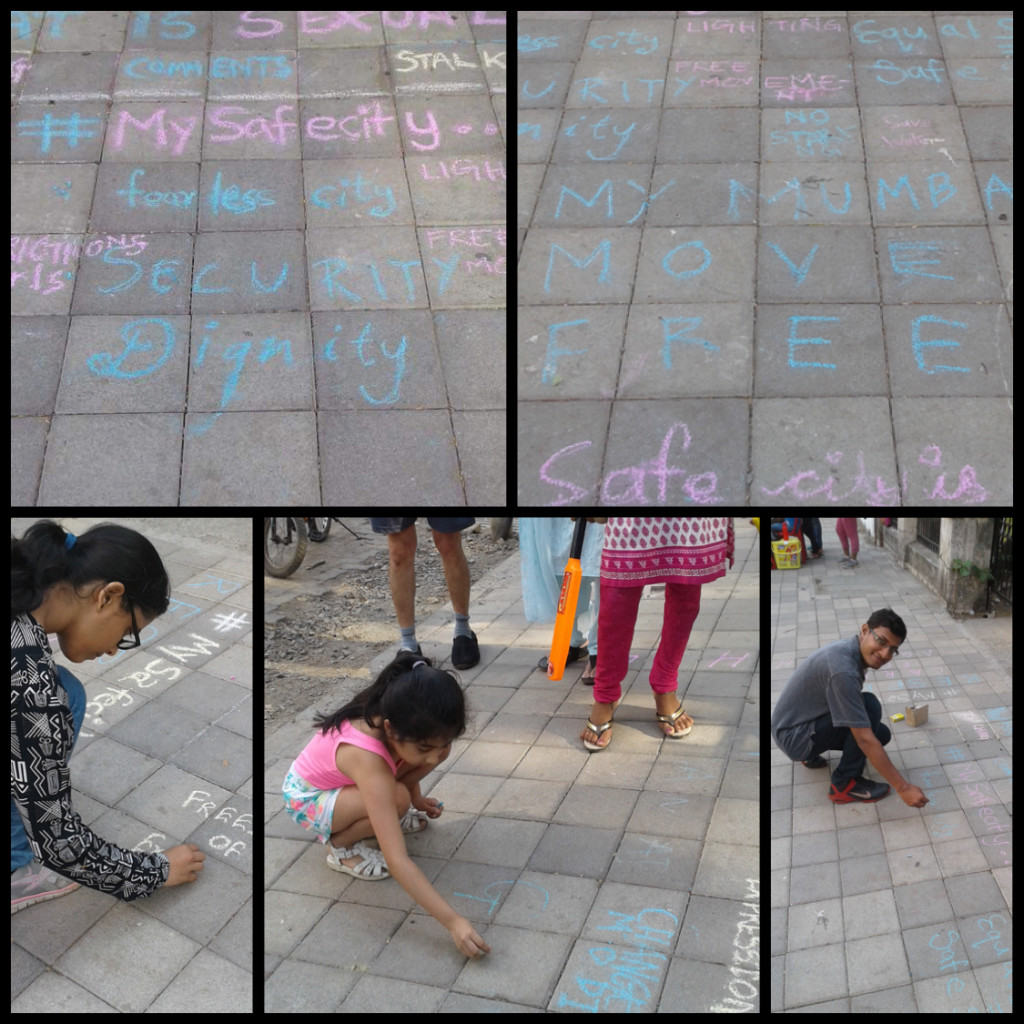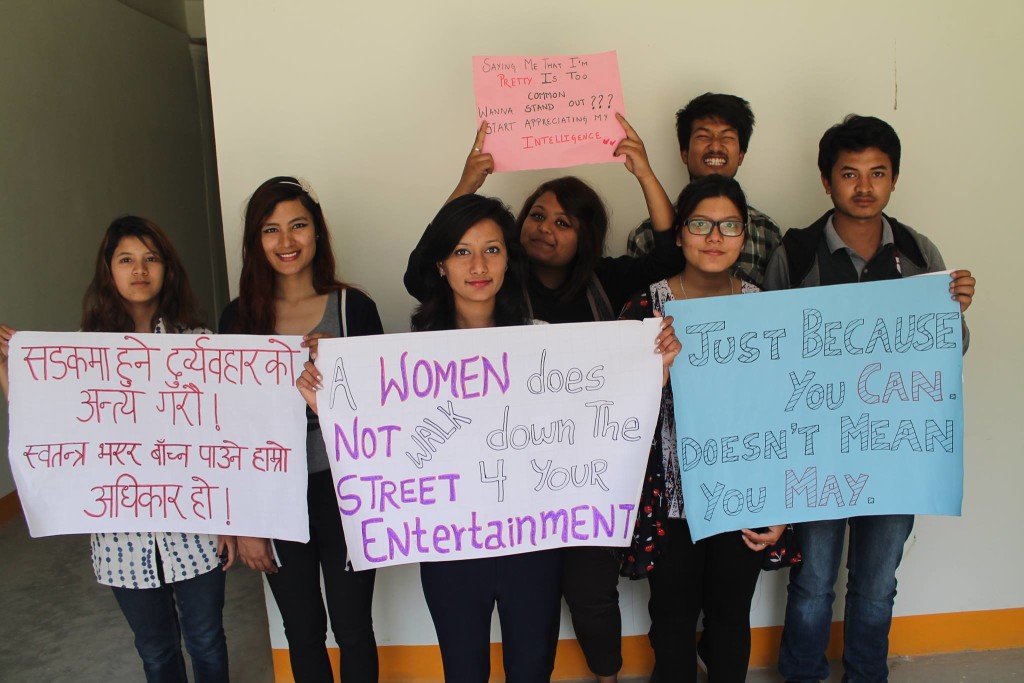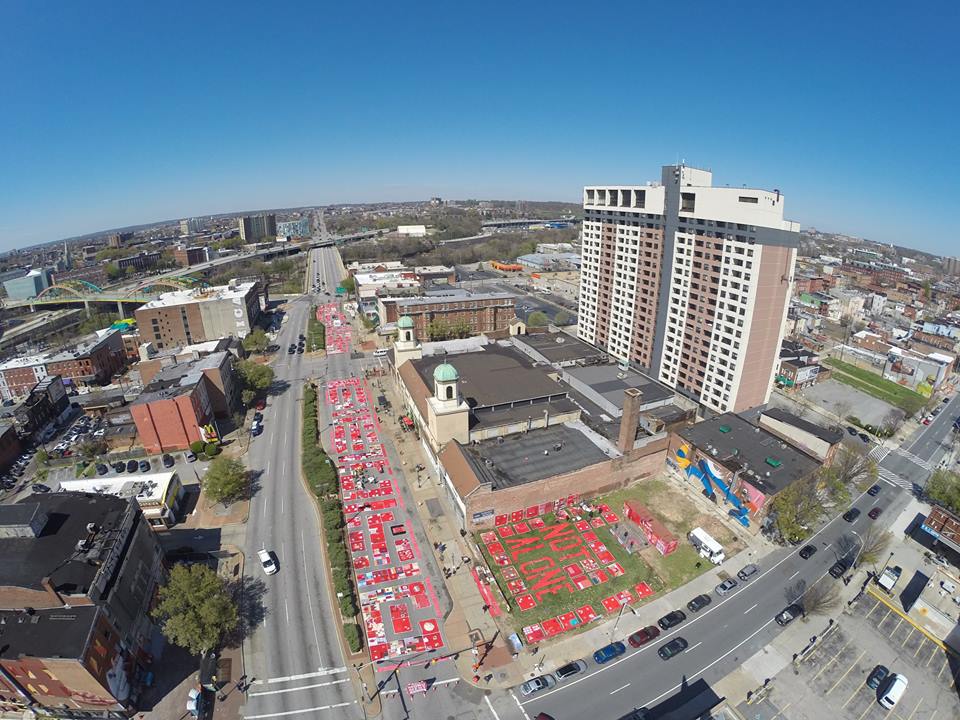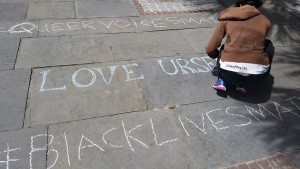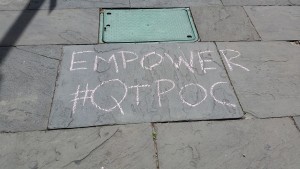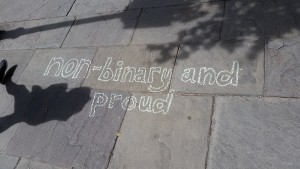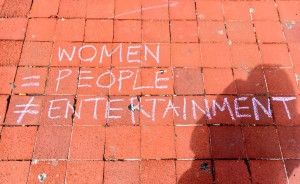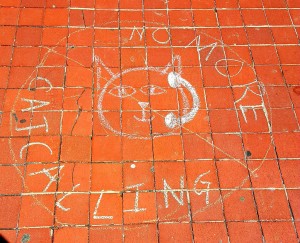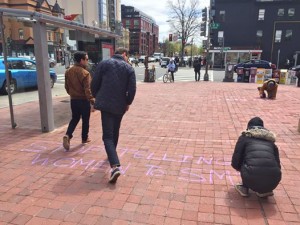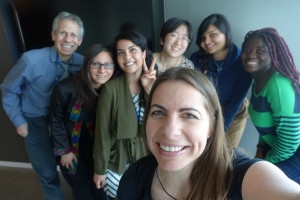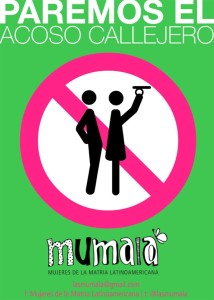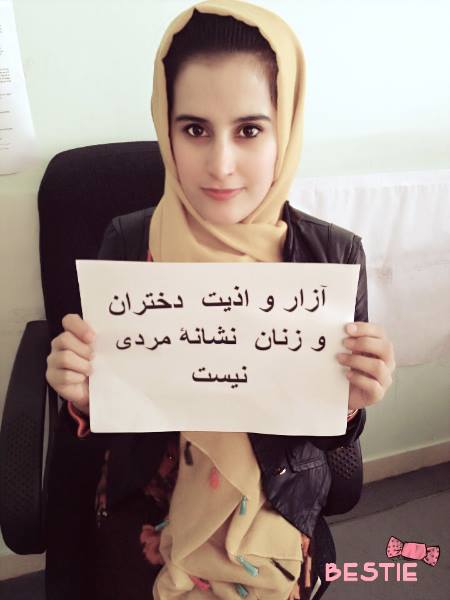
To commemorate International Anti-Street Harassment Week, Free Women Writers, an Afghan blog for social justice and gender equality, called on people around the country to send photos with messages about the harassment of women and girls in public spaces. Within the first week, dozens of powerful pictures were sent to the blog via Facebook, Twitter, Instagram, and Email.
The photos and the messages were inspiring, but Star Educational Society (SES), a private learning center with branches in several provinces in Afghanistan, went beyond that and engaged hundreds of students and teachers in speaking out against street harassment.
In three different branches located in Kabul, SES organized class discussions about street harassment in which men and women spoke about the problem and efficient ways of fighting with it. Then students and teacher wrote and took pictures with signs about street harassment. The pictures and slogans were published in the center’s newspaper to encourage further debate.
“With this campaign we not only stand against the negative perceptions that exist about Afghan men, but we also redefine masculinity and stand firm to build a better community,” said Ali Reza Yasa, Chairman and Chief Executive Officer at SES.
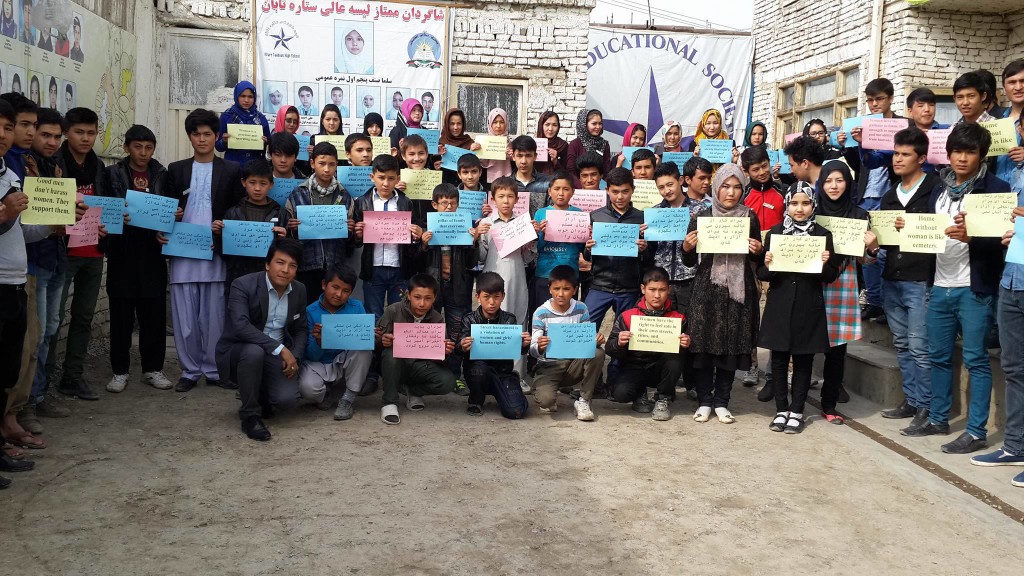
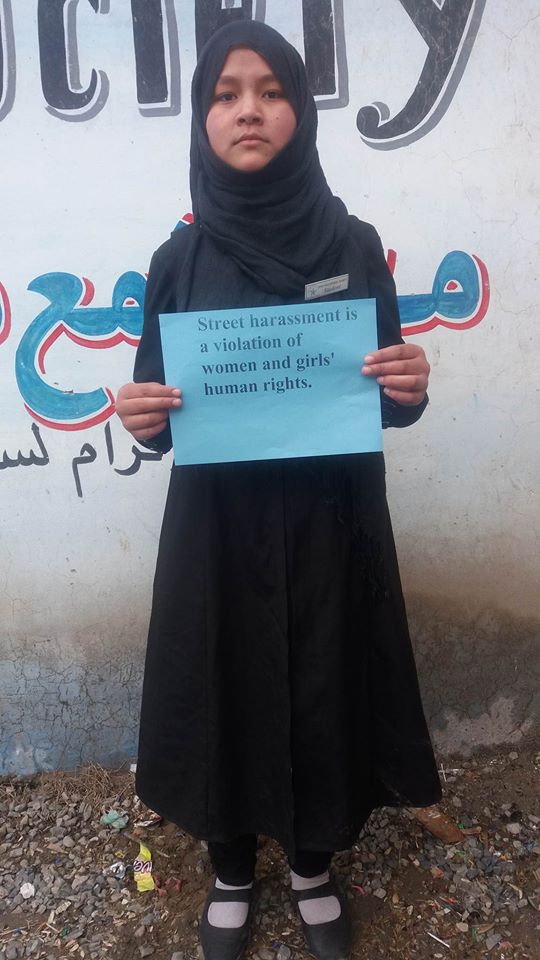
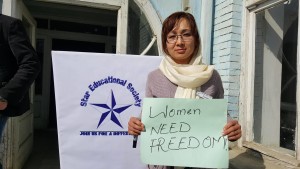 Using Free Women Writer’s campaign, SES not only created a meaningful debate about street harassment in their centers but also allowed students the opportunity to feel agentic by raising their voices. According to Yasa, one of the most encouraging outcomes of the campaign was that girls, who usually do not want to take photos due to fear of violence or harassment, participated with enthusiasm and passion.
Using Free Women Writer’s campaign, SES not only created a meaningful debate about street harassment in their centers but also allowed students the opportunity to feel agentic by raising their voices. According to Yasa, one of the most encouraging outcomes of the campaign was that girls, who usually do not want to take photos due to fear of violence or harassment, participated with enthusiasm and passion.
“We are so glad to have been part of this initiative. The culture of street harassment has to end. Let’s hope for a better Afghanistan, one we all deserve,” Yasa said.
Noorjahan Akbar is a human rights advocate from Afghanistan. She runs Free Women Writers, a blog about gender equality and social justice in Afghanistan.

